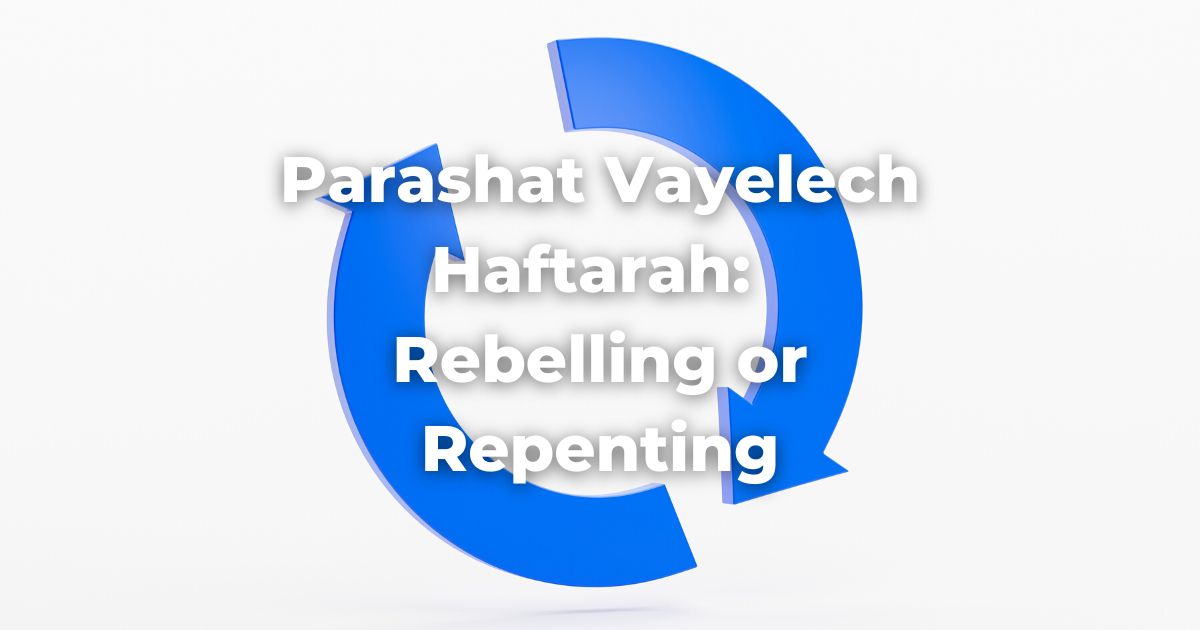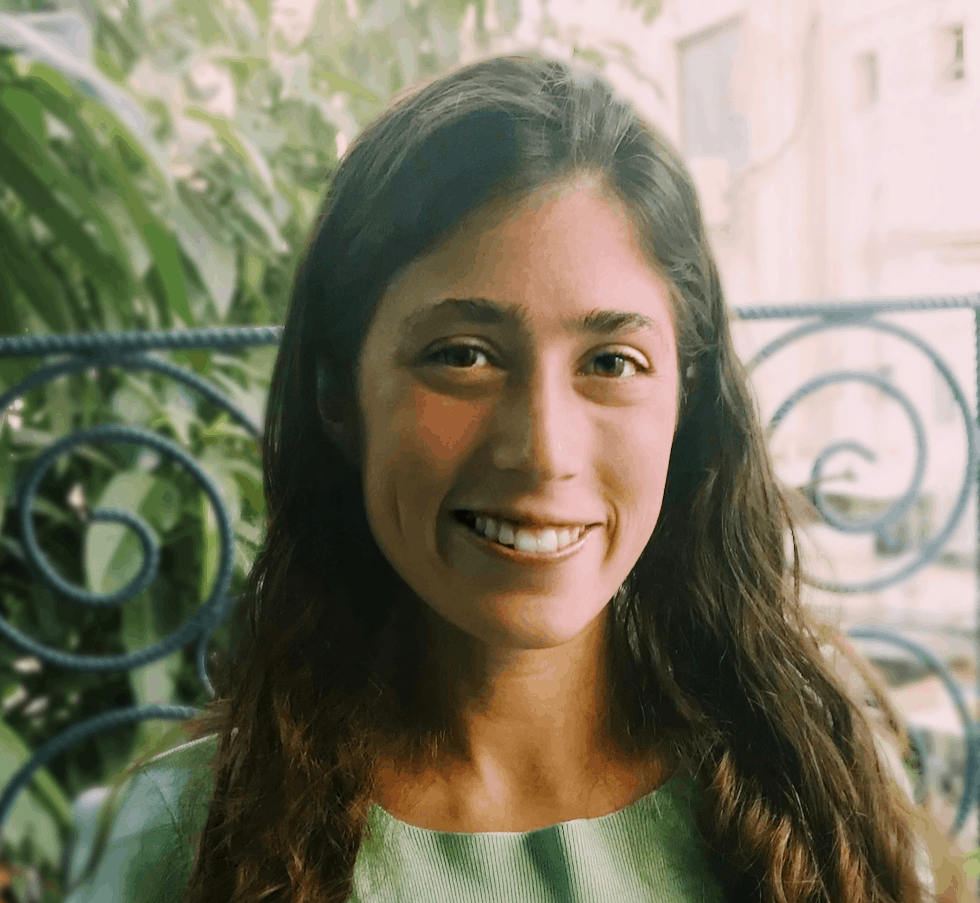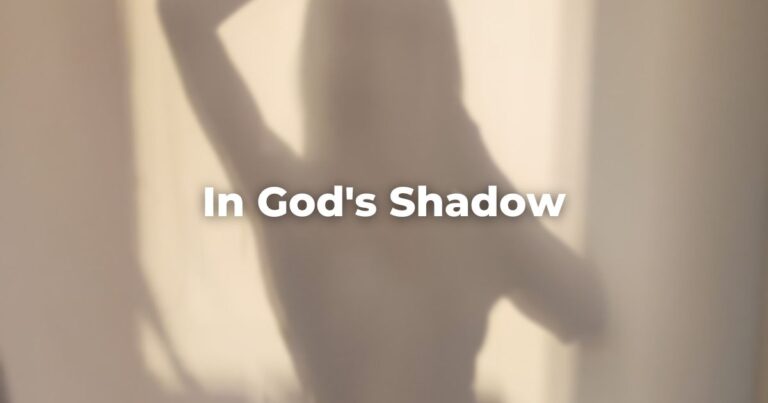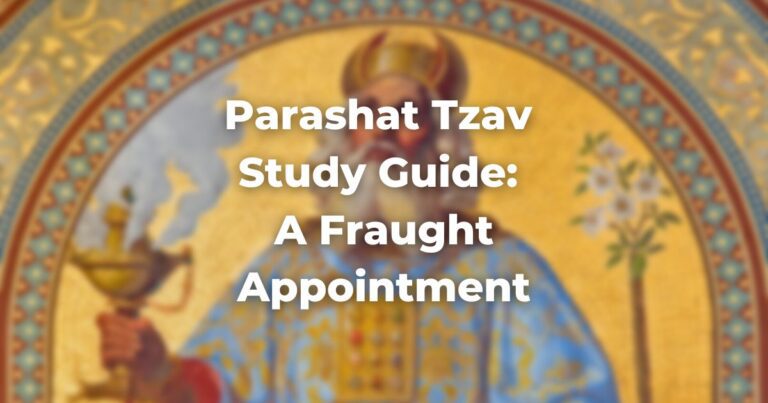The haftorah this week, the week of Shabbat Shuvah, is all about return and repentance.
Invitation to Return
As we read, we hear the word “shuv” over and over again, inviting us to return. The portion, Hosea 14, opens with the call, as translated by Robert Alter, “Turn back, O Israel, to the LORD your God, for you have stumbled in your crime.”
Here, “shuv” is translated as “turn back.” Rashi notes the threat in the verse—we have already done bad and have already suffered. We must turn back before things get any worse.
In the biblical framework of repentance, particularly in the Book of Hosea, there is a time and a place to which we want to return. The idea of teshuvah as a going back needs a baseline of good behavior or good times to which we want to return.
The Book of Hosea imagines those as our time in a loving relationship with God in the desert before we entered the Land of Israel.
This notion of turning back as unequivocally good is complicated as the chapter continues. We read, as translated by Alter, “I will heal their rebellion, I will love them freely, for My wrath has turned back from them.”
The root shuv appears twice in this verse, both as “rebellion” and as “has turned back.” Our initial crime, our stumbling, was caused by a misguided attempt at turning back. We attempt teshuvah and instead find ourselves in rebellion.
As Rashi notes, this verse shares vocabulary with a verse in Jeremiah 3, which also gets at the meaning behind teshuvah. We read the root shuv three times in close succession there, “Turn back, rebellious children— I will heal your rebellion.” A more literal translation might read, “turn back, children who have turned away— I will heal your turnings away.”
The Ten Days of Turning Back
As we find the year having turned back on us yet again, as we stand in the middle of the hagim once more, it is difficult to know which way to turn.
As Alice learns in Wonderland and Neo learns in the Matrix, one side will make us turn away and one side will make us turn back. The trick is figuring out what it is we actually want to do. We have the tools at our disposal to choose to return or to rebel.
These ten days of return give us the ability to reset.
However, unlike Hosea, we do not necessarily know what it is we can or should be turning back to. We do not have a beautiful baseline of personal behavior from which we have deviated. We have only the stories we tell, the imagined Israel that was and the generations of commentary on their behavior. These ten days give us the ability to choose to turn back.
Our stories present us with rebels and repenters, often as the same character. The choice is never easy and it is a choice we have to make over and over again.
See more: Parashat Vayelech
Originally posted as part of the Conservative Yeshiva at the Fuchsberg Jerusalem Center’s Torah Sparks. Support TorahRefers to the first five books of the Hebrew Bible, the Tanakh, also called the Five Books of Moses, Pentateuch or the Hebrew equivalent, Humash. This is also called the Written Torah. The term may also refer to teachings that expound on Jewish tradition. Read more learning from the Fuchsberg Jerusalem Center/Conservative Yeshiva for leaders and seekers around the world here.
Authors
-

Bex Stern Rosenblatt is the Conservative Yeshiva’s Faculty-in-Residence for the Mid-Atlantic Region of the United States, teaching Tanach, using the techniques of close-reading, theater, feminist readings, and traditional commentators. Bex also directs the CY’s recruitment efforts in North America. After finishing her B.A. in History and German at Williams College, Bex received a Fulbright Grant to Austria. She later earned an M.A. in TanakhAn acronym for the name of the Hebrew Bible: Torah, Neviim, and Ketuvim. Read more from Bar Ilan University and has also studied at the Conservative Yeshiva and Bina Jerusalem. Bex is the founder of HavrutaA study partner. A hevruta is more than just a ‘study buddy’ it is a serious and personal relationship between colleagues. Also spelled: Havruta Read more Tel Aviv, an organization that facilitates guided pair-learning of the Tanakh.
View all posts -



The Fuchsberg Jerusalem Center (FJC) is a home in the heart of Jerusalem where leaders and seekers can find an authentic place in Jewish tradition to call their own. FJC offers opportunities to study, pray and explore within an egalitarian and inclusive setting, creating multiple pathways for finding personal and communal meaning.
View all posts






